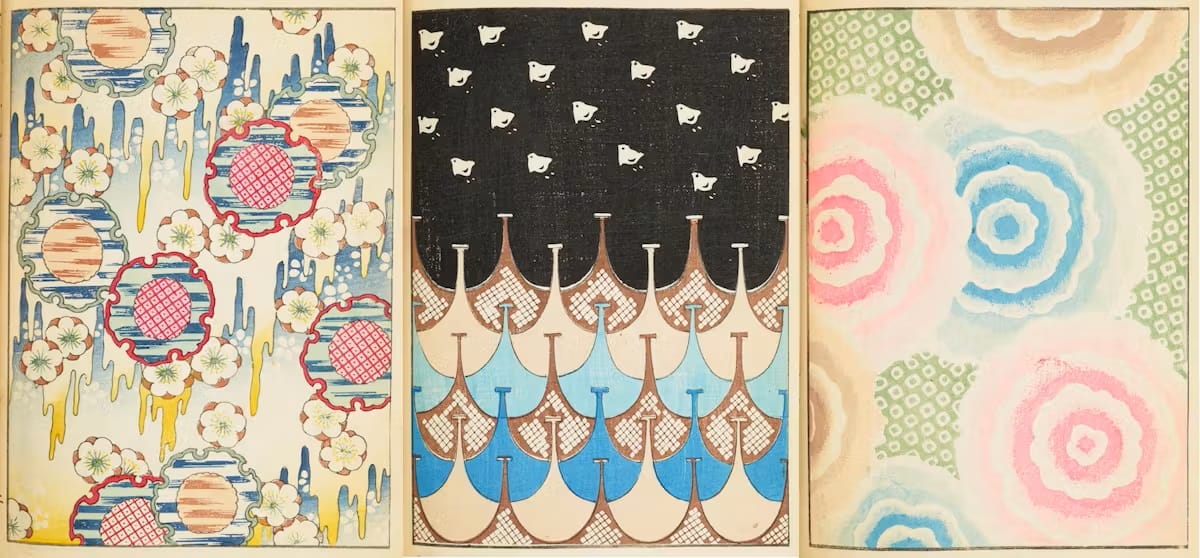"the prism of cross-cultural pollination"

This three panel image is just one slice from a beautiful pattern magazine, Shin-Bijutsukai, published in Japan in 1902. You can check out the rest of the magazine here.
Shin-Bijutsukai emerged when Japanese artists were beginning to encounter their own traditional aesthetics re-presented to them through a Western lens, and it was part of an effort to fit into a new global context, both artistically and economically:
"artists traveling abroad on government grants encountered Art Nouveau and Japonisme — the Western European fondness for a mediated, Japanese aesthetic — which they, in turn, folded back into domestic patterns: forging originality through the prism of cross-cultural pollination."
More:
- If you're interested in other examples of pattern or design books, here's one of my favorites, by Anton Seder: Anton Seder’s The Animal in Decorative Art (1896).
- And here's an exploration of a "color plate book" by Owen Jones: Cracking the Universal Code of Beauty: Owen Jones's Grammar of Ornament.
Not everything has to be meaningful
By Brad Stulberg. The New York Times (gift article)
It's a platitude almost everyone has heard: “what doesn’t kill you makes you stronger.” This article explores the harm we can inflict on others, and ourselves, when we insist on this "universal" truth at every opportunity.
“A large body of psychology research shows that constructs such as growth mind-set, gratitude and construing meaning out of struggle can promote well-being. However, there are times when what you are going through is so painful, vexing and void of purpose that trying to adhere to these constructs hinders, rather than helps, your healing.”
More:
- This episode from the podcast Hidden Brain touches on many of the same ideas: What We Gain from Pain.
VIDEO: How did we end up here? Anthropologist explains how work has shaped society
By James Suzman. Big Think.
This short explainer traces the evolution of human societies, from the discovery of fire through the development of cities, to illustrate a central point:
...so many of the concepts around which we organize our economy now actually have their roots firmly planted in the fields of the agricultural revolution, and in many ways, are not particularly suitable to the highly automated modern world in which we live in now.

